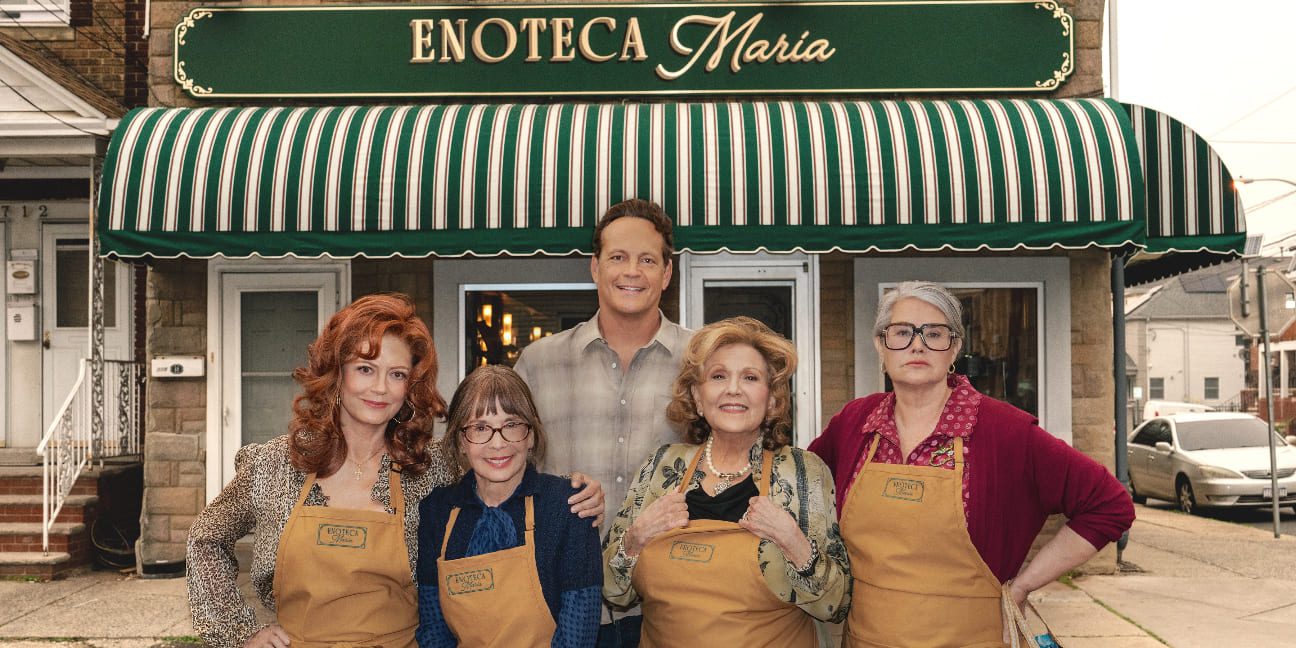Netflix’s ‘Nonnas’ ends with Joe facing the heartbreaking prospect of his restaurant going out of business even after pouring significant amounts of resources and efforts into its success. Despite trying his best to preach the value of a traditional Italian restaurant run by nonnas, the protagonist finds himself battling against orthodox views within the fine-dining industry and the jealous eyes of other regional store owners. However, he persists in his unconventional business practices, which come to bear near the final moments. With the ground slipping away underneath him, the character showcases immense resilience and fortitude as he tries to double down on his belief in the operation and his connection with the four nonnas who bring a homely element to their cooking. SPOILERS AHEAD.
Nonnas Plot Synopsis
The movie opens forty years ago in Brooklyn, New York when a young Joe visits a confectionary shop to get some sweets for his parents. After eating one of them entirely, he returns to his mother and Nonna to hand over the sweets. The memory of standing in the kitchen watching the two women cooking food becomes a seminal moment in his life. We then skip ahead to the present day, where Joe is attending his mother’s funeral service. His childhood friend, Bruno, consoles him about the matter while Joe yearns for a deeper connection. He remembers his mother and Nonna’s connection with food and tries to get closer to their memory by cooking home-cooked meals. However, he is unable to remember the recipe behind his Nonna’s secret gravy.
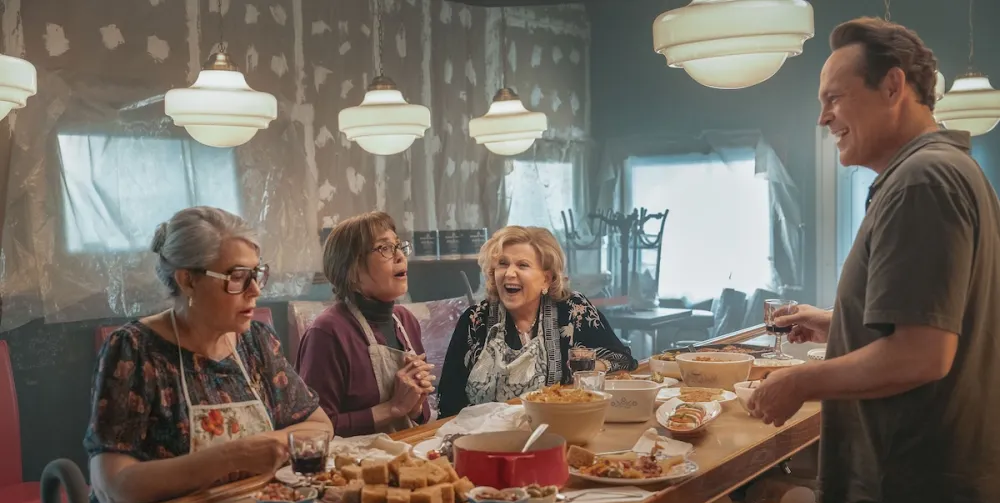
Worried by his apathy and detached attitude, Bruno and his wife Stella urge Joe to take the insurance money from his mother’s death and use it to further some interest of his own. They believe that it will help ease his depression and give him something to focus on. However, the protagonist is unsure what to pursue as a hobby and even finds the idea of using the money from his mom’s death as an egregious act. Things take a turn when, during a visit to Staten Island, Joe discovers an Italian restaurant named Spirito’s that is currently for sale. He impulsively buys the property and breaks the news to Bruno and Stella. While they are both skeptical about his actions, Joe explains that he believes he can start his own restaurant business with traditional Italian values, including hiring nonnas as cooks.
At first, the idea of hiring older women seems ludicrous to everyone involved. However, Joe insists that they have an inherent connection with familial values and bring a sense of warmth and comfort to the food, which directly taps into his personal memories of his mom and Nonna’s cooking. With Bruno’s financial backing, the protagonist starts recruiting a team of chefs: Roberta, Antonella, Teresa, and Gia, four women with distinct personalities. They are each designated with their own special dishes, while Joe faces another big challenge in his path – obtaining the permit to legitimize his business’ opening. He also finds himself rekindling his connection with Olivia, an old friend from school whom he asked out as his prom date, only to bail out at the last second.
Nonnas Ending: How Does the Restaurant Take Off?
While Joe’s resolve in the restaurant (named Enoteca Maria after his mother) is firm at the start of the movie, it progressively flounders as the business takes several hits. The denial of the permit is the first of many challenges besetting his newfound business. He also faces the issue of creating a more organic team chemistry between the four chefs, who sometimes bicker over menial topics. However, operating costs are the biggest problem underlying the restaurant’s opening. The issue is compounded further when, following the launch, the store sees no influx of customers other than some family and friends of the staff. Desperate for any traction, Joe tracks down a popular food critic with the hopes that he might review their shop and shine a spotlight in their direction. When it seems futile, the protagonist tells his four chefs that he can no longer sustain the restaurant.
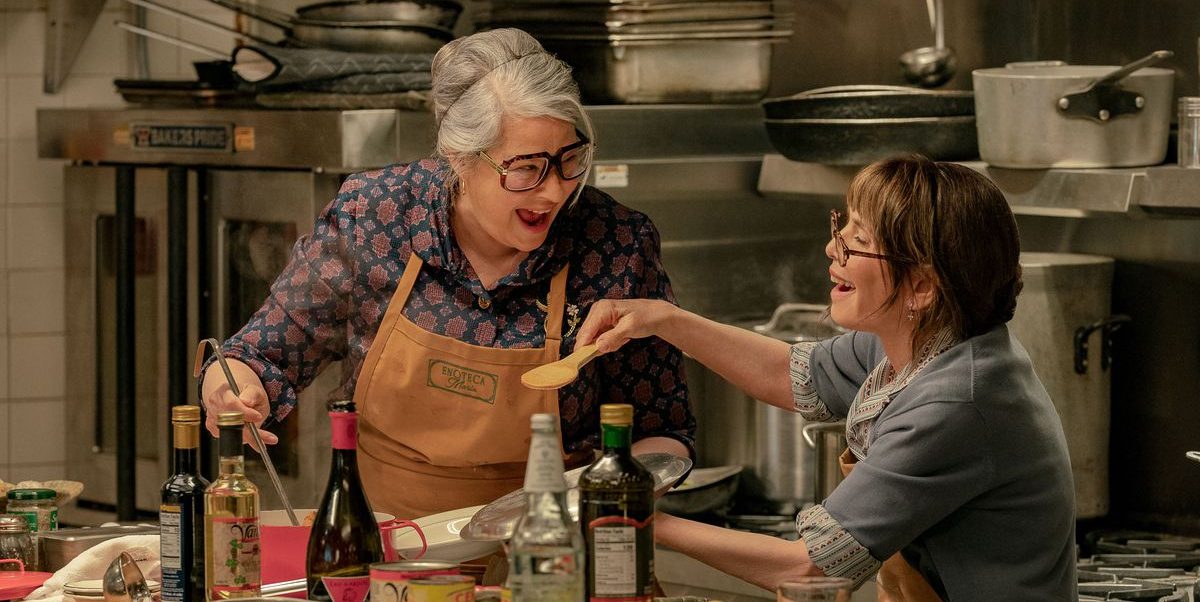
As a final celebration before closing, Joe invites a slew of friends and families to Enoteca Maria for one final revelry. Unbeknownst to him, the event was also attended by a female food critic under the orders of Mr. Durant, the critic he had visited earlier. As such, the morning following the event, the protagonist is surprised to learn that the critic left a wholly positive response to his restaurant, which has a massive impact on the business. This is the biggest victory in Joe’s venture because it effectively provides him with a new lease and revitalizes the failing company. Antonella also plays a big role in garnering more support for the restaurant by reprimanding a local who badmouths the cuisine because of a personal grudge. Thus, the combination of factors is pivotal in bringing the shop back into action.
In the final scene, we see Joe breathe a sigh of relief as he stands outside the restaurant with a satisfied smile on his face. His expression shows that he feels a genuine sense of pride and accomplishment at having successfully turned Enoteca Maria into a profitable business and a guarantor of his mother’s legacy. It also brings him closer to the memory of his Nonna, which is exemplified in a scene where he sees apparitions belonging to her and his mom standing next to the four chefs. The touching moment brings the whole story full circle and gives Joe a sense of closure. Therefore, the restaurant’s success stands as a symbol of his inner conflict and finally finding the resolve to make his dream come true in the most dramatic manner with the help of others.
Do Joe and Olivia End Up Together?
Although running the restaurant takes up most of Joe’s efforts, his life also takes a swift turn after his paths cross with Olivia. The pair are surprised to run into each other, especially after so many years. We later learn that they had a history in their past. He asked her out as his prom date in high school. However, when the time came for the date, he never showed his face, which soured their relationship forever. Ever since then, Joe feel guilty about his part in ruining the bond and hurting her. To that end, he apologizes to her for his teenage behavior. In the meantime, Olivia also points out that she lost her husband not so long ago, which left her with a lot of pain to deal with in the aftermath. As such, Joe feels for her and tries to support her in any way he can.
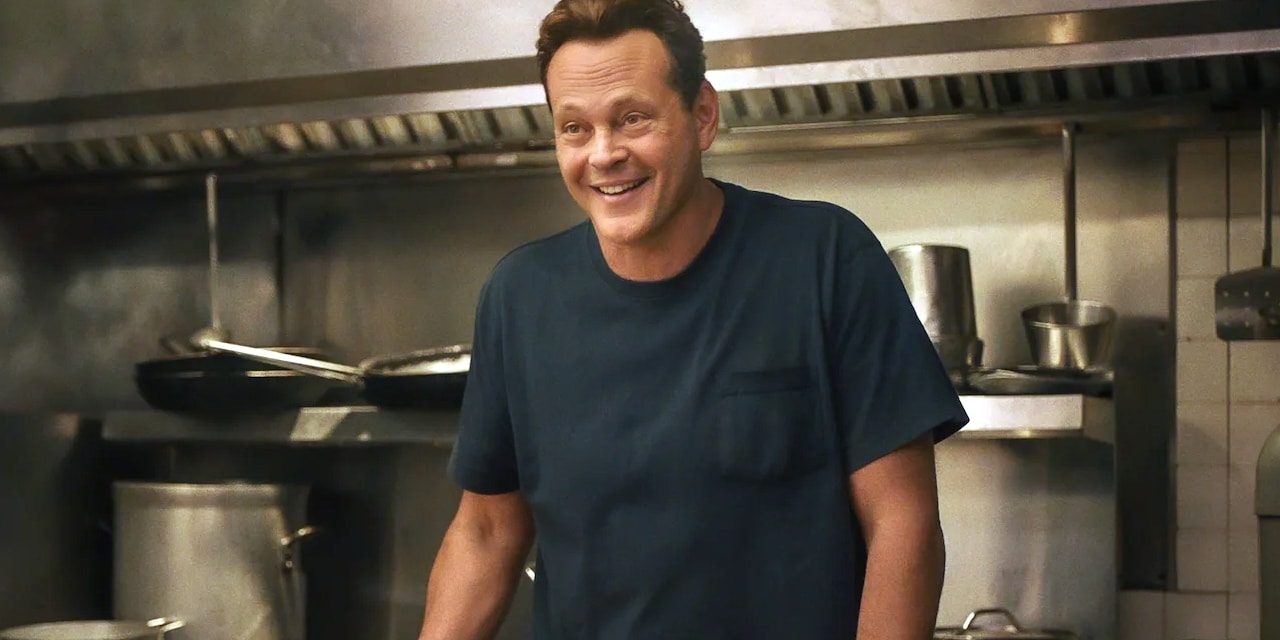
At the end of the movie, Joe notices that Olivia has switched her wedding ring from her left hand to her right, suggesting that for the first time in a long time, she is willing to try and build a new relationship with him. This development comes after the two reconcile their past differences and see each other’s value. For instance, Olivia is impressed by how Joe helps Antonella find a new purpose in the later period of her life by employing her in the restaurant. Meanwhile, the protagonist gets the opportunity to make amends for his past folly and be more supportive and kind towards Olivia. Eventually, he learns that she may be harboring feelings for him via a throwaway comment by Antonella. To that end, their journey culminates with them growing closer and likely forging a romantic relationship.
Why are the Nonnas Important to Joe?
The central message of ‘Nonnas’ is primarily built around the concept of tradition, family, food, culture, and powerful motherly figures in a community. Joe’s admiration for his own mother and Nonna bleeds into his overarching worldview when he starts the restaurant business. He is convinced that the cuisine will stand out amongst its competitors if it hires nonnas who have strong ties to caretaking, nurturing, coziness, and spreading warmth. The main reasons behind his decisions are emotional and driven by the vision that the customer should feel like they are enjoying family food outdoors. To that end, the nonnas are both a symbolical connection to his past while also playing a major role in dictating the business strategy.
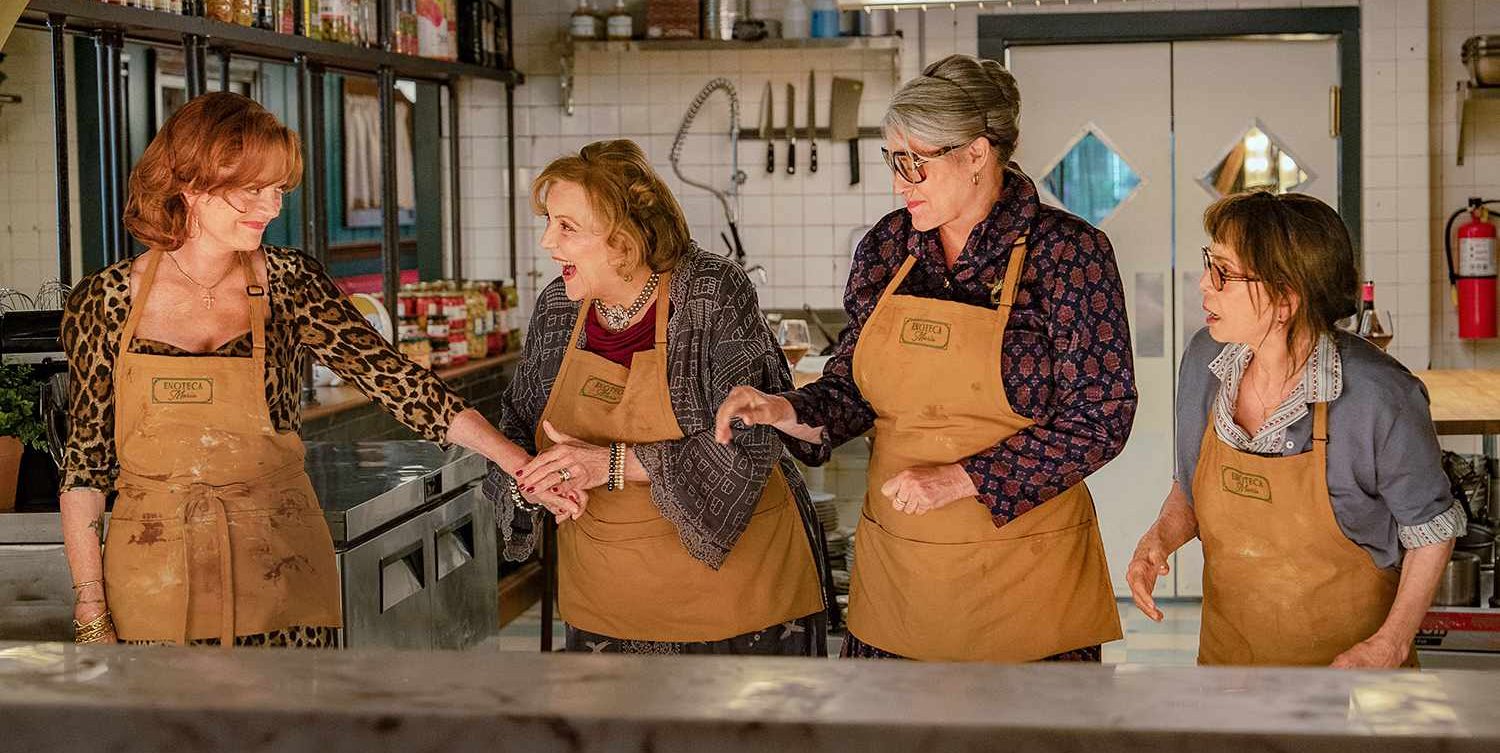
When Joe hires the four nonnas, we see that each of them is struggling with societal prejudice and a loss of purpose in the twilight of their lives. As such, they have to redefine their identities when Joe decides to hire them as the main chefs in his business. For instance, Olivia is the first person to encourage Antonella to take up the job offer and work at the protagonist’s shop, mainly because she wants her nonna to have a more active lifestyle rather than sit around passively. The same is true to varying degrees for Teresa, Roberta, and Gia. All three of them are confronting the difficulties of late-stage adulthood and how it adversely affects one’s thinking when it comes to empowerment. In a way, the protagonist helps liberate them from the shackles of society by offering them the job of a cook.
Another profound theme embedded in the narrative is the connection between food and cultural identity. As an Italian, Joe feels very close to the Mediterranean cuisine he ate during childhood. More often than not, these foods were cooked by female figures within the house. Therefore, culture, heritage, motherhood, and food are intermingled within a small space. One of the film’s most memorable elements is Joe desperately trying to remember his nonna’s old gravy recipe. For large chunks of the narrative, he is unable to remember it in an adequate fashion. This storyline is eventually resolved at the end, signifying the delicate balance between the past, present, and future. It all comes to the fore by exploring the substantial roles played by nonnas in his restaurant.
Read More: Where was Nonnas Filmed? Shooting Locations of the Netflix Movie

